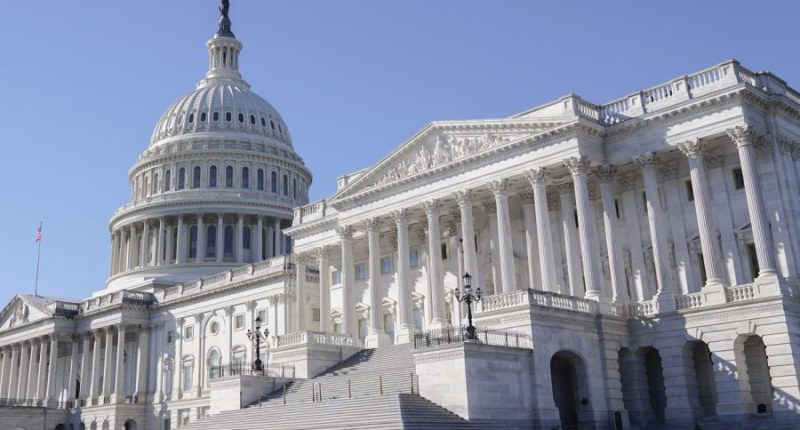Share this @internewscast.com

(The Hill) – On Friday, Moody’s ratings agency lowered the U.S. credit rating from triple-A to double-A status. This change comes as Republicans attempt to push through a substantial tax and spending reduction bill, which is expected to increase the federal deficit by nearly $4 trillion.
The agency reduced the U.S. rating from “Aaa” to “Aa1” due to worries about growing debts and rising interest payments that the federal government will have to cover.
The downgrade indicates a rise in “government debt and interest payment ratios to levels that are notably higher than those of similarly rated countries,” Moody’s explained in a press release on Friday.
The move follows a negative outlook from Moody’s on the U.S. Aaa rating made in November of 2023.
It also follows a similar downgrade by ratings agency Fitch in 2023 that came in the wake of a precarious standoff over the debt ceiling between Democrats and Republicans in Congress that nearly saw the U.S. default on its debts.
Fitch dropped its own ranking in that year, citing an “erosion of governance.”
“The rating downgrade of the United States reflects the expected fiscal deterioration over the next three years, a high and growing general government debt burden, and the erosion of governance relative to ‘AA’ and ‘AAA’ rated peers over the last two decades,” analysts for Fitch wrote in 2023.
Like Fitch, Moody’s said its downgrade takes the previous decade of U.S. fiscal conditions into account.
“Over the next decade, Moody’s anticipates federal deficits will widen, reaching nearly 9 percent of GDP by 2035, up from 6.4 percent in 2024, driven mainly by increased interest payments on debt, entitlement spending, and relatively low revenue generation,” analysts for Moody’s wrote Friday.
The massive Republican package making its way through Congress now centers on an extension of the 2017 Trump tax cuts. The package is anticipated to add more than $3.8 trillion to the deficit over the next nine years.
Democrats in Congress have asked for an official estimate from the Joint Committee on Taxation (JCT) that would look at the next 10 years, within which window the cost of the bill could be more than $4 trillion.
Extension of the individual tax cuts rates will cost about $2.2 trillion, according to JCT.
















